Jaclyn Driesenga
Click here to learn more about Jaclyn's experience in Middle East Beyond the Headlines!
See current course descriptions for the 16 sequences we're offering in the 2023-24 academic year. Sequence offerings rotate in and out from year to year, to some extent.
Coeli Fitzpatrick & Majd Al-Mallah
Fall: HNR 151 01 MW 12:00-1:15 p.m. and HNR 152 01 MW 1:30-2:45 p.m. HON 219
Winter: HNR 153 01 MW 12:00-1:15 p.m. and HNR 154 01 MW 1:30-2:45 p.m. HON 219
We’ve all watched the news. We’ve read the headlines. We’ve seen movies where there are Arab and Muslim characters. Therefore, we know about the region and its peoples, right? What more is there to learn? In truth, most people would say that they know enough about the Middle East. That they know enough about Arabs. About Muslims. The premise behind this class is that the Middle East is a vast region with complexity that we ought to explore beyond what’s readily available through media and popular film. Because the region is generally covered through a limited lens, this class tries to get behind the headlines to uncover the layers of complexity that make up both this region we call “The Middle East” and its multiple peoples, religions, languages, and cultures. The ultimate goal is to reach a nuanced and educated way of knowing. We also think about what goes into the construction of headlines. How have we come to think about the region in such simplistic ways? Why do we know so little about the cultures and the important contributions to humanity? Can we name a single Arab author? Our class is a discussion-based class, meaning that we don’t like to just lecture—we want to talk about what we are reading, seeing, and hearing. We value working in communities/teams, and strive to prepare students to be informed global citizens with sensitivity and cultural competency. We use a variety of ways to assess work, never limited to one method. We use different types of writing: blog posts, short essays, reading briefs, and some formal essays.

Click here to learn more about Jaclyn's experience in Middle East Beyond the Headlines!
Charles Pazdernik, David Crane, Charles Ham
Fall: HNR 151 02 MWF 1:00-1:50 p.m. and HNR 152 02 MWF 2:00-2:50 p.m. HON 220
Winter: HNR 153 02 MWF 1:00-1:50 p.m. and HNR 154 02 MWF 2:00-2:50 p.m. HON 220
Ancient Greece and Rome are among the world's most exciting, important, and influential civilizations. Taught by researchers into various aspects of classical antiquity from Homer to the fall of the Roman Empire and beyond, the course asks participants to cooperate actively and enthusiastically in exploring mythology, history, art and archaeology, literature, and philosophy. Interactive learning experiences, including immersive role-playing games and field trips, complement spirited class discussions and careful attention to close reading, effective writing, and critical thinking. No prior knowledge is necessary (all texts are in translation).
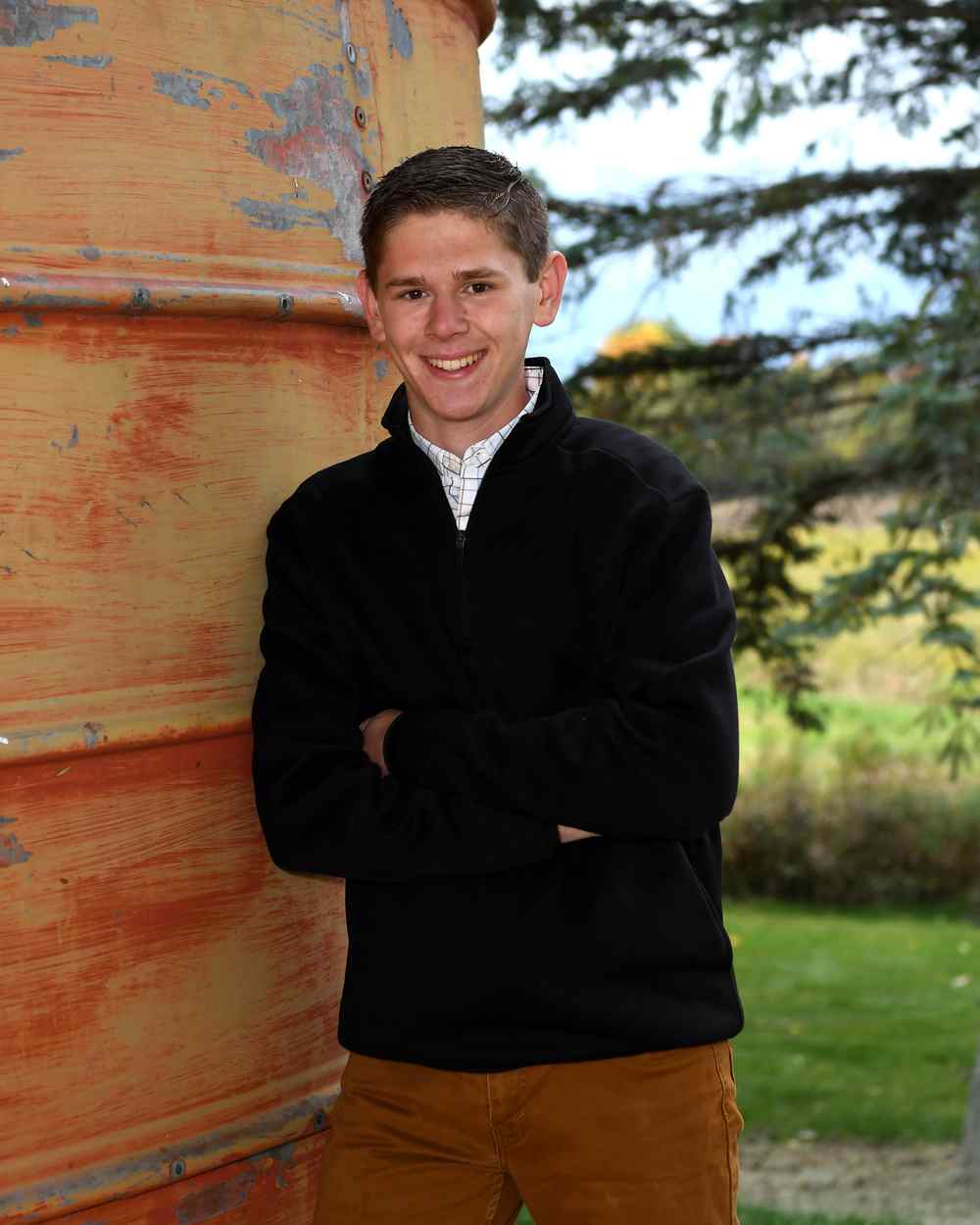
Click here to learn more about Sam's experience in Worlds of Greece and Rome.
Ellen Adams & Leifa Mayers
Fall: HNR 151 03 TR 10:00-11:15 a.m. and HNR 152 03 TR 11:30-12:45 p.m. HON 218
Winter: HNR 153 03 TR 10:00-11:15 a.m. and HNR 154 03 11:30-12:45 p.m. HON 218
We are culturally socialized to avoid difficult conversations. Not often do we substantively engage with one another about contentious, offensive, and potentially dangerous ideas. Moreover, contemporary life presents us with unique challenges: faster and ever-changing technology, genetically modified products, and radical changes to the ways that we live our lives. This course will study the artists, writers, and scientists who engage in work that addresses these challenges (and others) in polarizing, impactful, and/or divisive ways. Additionally, this course will explore how contentious ideas, both past and present, reflect prevailing beliefs about the social world. When and how is it possible to challenge social norms and dominant beliefs? How can learning more about art, literature, and science facilitate difficult conversations? Throughout the year students will practice framing questions to allow space for meaningful discourse.

Click here to learn more about Riley's experience in Dangerous Ideas!
John Weber & Steeve Buckridge
Fall: HNR 151 04 TR 2:30-3:45 p.m. and HNR 152 04 TR 4:00-5:15 p.m. HON 220
Winter: HNR 153 04 TR 2:30-3:45 p.m. and HNR 154 04 TR 4:00-5:15 p.m. HON 220
This sequence explores the human history and natural science (e.g., geology, physical geography, biology, and human geography) of Africa. Africa contains some of Earth’s most ancient (Archean) rocks, meteorites, and meteorite craters. These record Earth’s early planetary history. Africa’s immense mineral and energy (petroleum, uranium) wealth formed during several key geological events. Africa is today a lone continent that was carved (rifted) out of the supercontinents Pangaea and Rhodinia. The evolution of life, human life, and global climate were drastically affected by these early assembly and rifting events, as well as by modern East Africa rifting. Approximately 2 million years ago the first humans left Africa. Africa’s megafauna is Earth’s only remaining megafauna, stranded after the last ice age 15 thousand years ago. The two Fall courses in this sequence explore the pre-colonial human history and early natural science of Africa. The two Winter courses include an exploration of the colonial human history, colonial exploration and exploitation of natural wealth, human and megafauna evolution, climate change, and a writing/presentation (SWS) project of a topic that attempts to synthesize African human history and natural science.
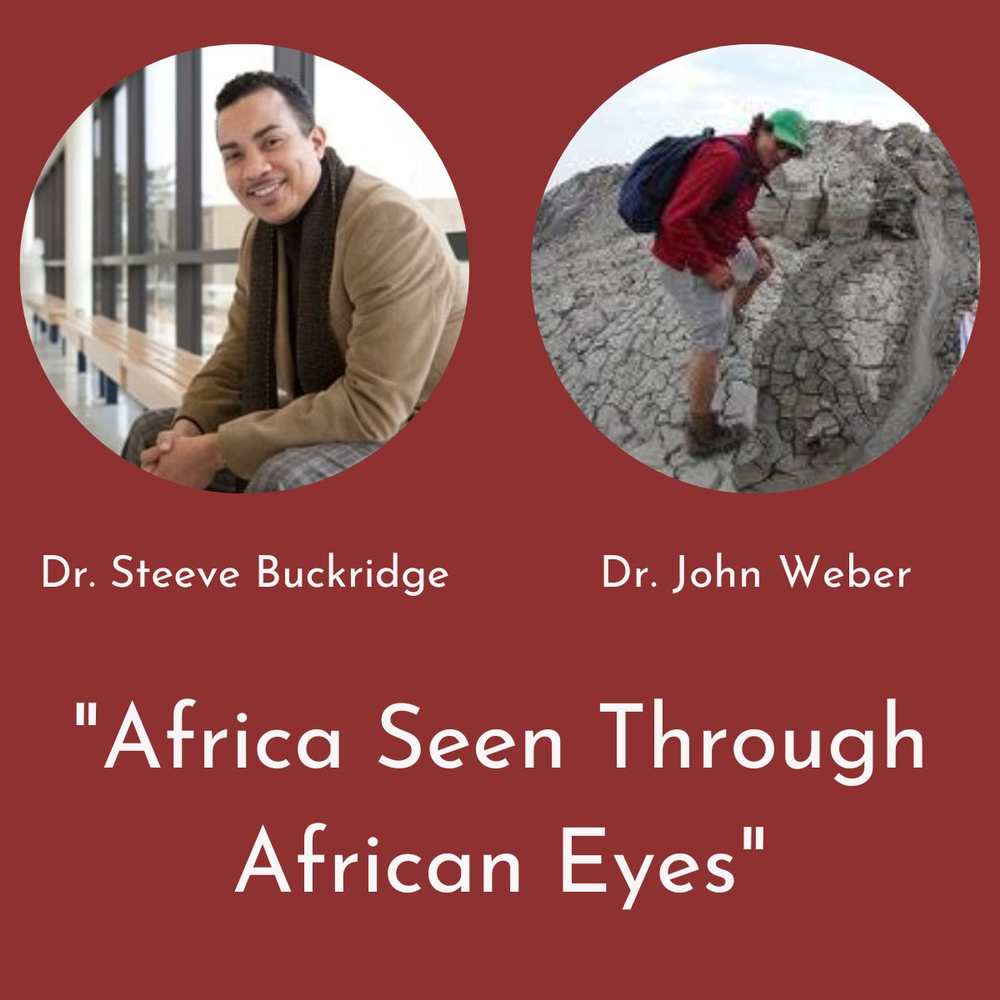
Click here to learn more about Dr. Weber and Dr. Buckridge's course!
Meghan Cai, Jeremy Robinson, Yan Liang, Jason Herlands
Fall: HNR 151 05 MW 3:00-4:15 p.m. and HNR 152 05 MW 4:30-5:45 p.m. HON 218
Winter: HNR 153 05 MW 3:00-4:15 p.m. and HNR 154 05 MW 4:30-5:45 p.m. HON 218
This four-course, two-semester sequence explores the circulation of peoples, culture, and ideas throughout East Asia, from ancient connections between the regions of China, Korea, and Japan to contemporary interactions in a globalized world. The classes adopt a truly interdisciplinary approach, including both the “high culture” of history, literature, philosophy, and art; as well as the “lived culture” of food, family, school, and work. Rather than taking a chronological approach, the course explores common themes through which we can see the culture of the past informing the worldviews of the present.
Each semester, two courses are team-taught by specialists in Chinese and Japanese Culture: Meghan Cai and Jeremy Robinson in the fall, and Yan Liang and Jason Herlands in the winter. All classes feature readings in primary and secondary sources, full-class discussion, individual and group projects, student presentations, and written essays. Classes will also include group excursions to museums, restaurants, and marketplaces, exploring the many ways in which “East Asian culture” circulates in our own midwestern American communities.
Jeremiah Cataldo & Maria Cimitile
Fall: HNR 151 06 MW 10:00-11:15 a.m. and HNR 152 06 MW 11:30-12:45 p.m. HON 218
Winter: HNR 153 06 MW 10:00-11:15 a.m. and HNR 154 06 MW 11:30-12:45 p.m. HON 218
This sequence wrestles with power, not only for how it affects our understanding of the world but also in how we relate to each other. Through course materials and discussions, we will examine the historical foundations of power relations. We will analyze their heritages and influences in religion, politics, health care, business, science, and more. We will pay attention to differences between patriarchy and gender equality, racism and diversity, and how those influence the world even now. With a multidisciplinary lens, we will pursue an answer to this question: can and why should power relations change? And we will seek that answer on the levels of society and of the individual.

Click here to learn more about Jenna's experience in The Powers that Divide Us!
Ryan Lafferty & Paul Lane
Fall: HNR 151 07 W 3:00-5:50 p.m. and HNR 152 07 W 6:00-8:50 p.m. HON 148
Winter: HNR 153 07 W 3:00-5:50 p.m. and HNR 154 07 W 6:00-8:50 p.m. HON 219
Design Thinking for Social Product Innovation is a unique experience where two crazy guys in ties lead students through the year as they learn everything there is to know about the design thinking process. Throughout this course, students gain exposure to the world and adapt new perspectives through collaborative problem solving. Inside the classroom, students can expect a nonconventional form of education where the professors foster an active and engaging environment. This incorporation of six hours’ worth of exciting field trips, cultural cuisine, and connecting with classmates allows for a community to be formed. From exploring Art Prize in downtown Grand Rapids to building stick houses for lego people, each week brings a new set of experiences. This course challenges the students' way of thinking and involves ongoing effort and dedication. DTSPI develops a mosaic of real-world skills such as self-confidence, communicating, researching, and much more.
Click here for a glimpse into Design Thinking for Social Product Innovation.
Joel Stillerman & Heather Van Wormer
Fall: HNR 151 08 TR 11:30-12:45 p.m. and HNR 152 08 1:00-2:15 p.m. HHLC 209A
Winter: HNR 153 08 TR 11:30-12:45 p.m. and HNR 154 08 1:00-2:15 p.m. HHLC 209A
Why do the three richest people in the U.S. have as much wealth as the poorest half of the population? Why is sexual assault so widespread even though it is illegal? If race does not matter, why are black women more likely to die of breast cancer than white women? In a time when gay marriage is legal in the U.S., why is the existence of transgender bathrooms deemed dangerous? What are the sources of power and powerlessness in societies? We explore these questions by addressing the social and cultural systems that shape our opportunities and behavior even when we are not aware of them. We will investigate some pressing current topics, such as global income inequality, social injustice and oppression, environmental racism, unequal access to healthcare, the uncertain effects of digital technology on our world, and other issues of power and inequality. We will also explore how people unite to resist the corrosive effects of systemic inequality and oppression through political participation, protest, online activism, creative expression, and other forms of collective action. We will examine these issues of inequality and protest in the U.S. and around the world. Students will have the opportunity to explore some of these issues through small, independent research projects based on their specific interests both inside and outside the classroom. Students will gain experience with writing-to-learn and writing-for-mastery assignments as well as guided revisions of their writing. Classroom activities will include lecture, discussion, student presentations, multi-media activities, and field trips.
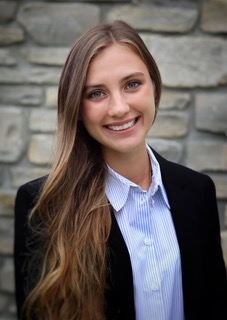
Read about Jhay-Lah's experience in Culture, Power and Inequality!
Steve Tripp and Allison Metz
Fall: HNR 151 09 TR 4:00-5:15 p.m. and HNR 152 09 TR 5:30-6:45 p.m. HHLC 207A
Winter: HNR 153 09 TR 4:00-5:15 p.m. and HNR 154 09 TR 5:30-6:45 p.m. HHLC 207A
“Make It New!” the poet Ezra Pound declared. American art, literature, and theatre shocked, challenged, and enthralled the world in the twentieth century. Meanwhile, more obscure Americans – racial and ethnic minorities, women, the poor and dispossessed, the young – also raised their voices to be heard and seen. This course will examine major artists, playwrights, authors and ordinary Americans whose work expressed this American passion for the new. Join us as we explore the social, economic, and political conditions that influenced and inspired these creators. Class material will be brought to life through vigorous discussions, interactive experiences, and low-risk performance opportunities. With special attention to the evolving understandings of "youth" woven throughout twentieth century artistic and creative movements, we will emphasize how these voices and visions challenged, extended, enhanced, complicated, and even undercut what it means to be an American.
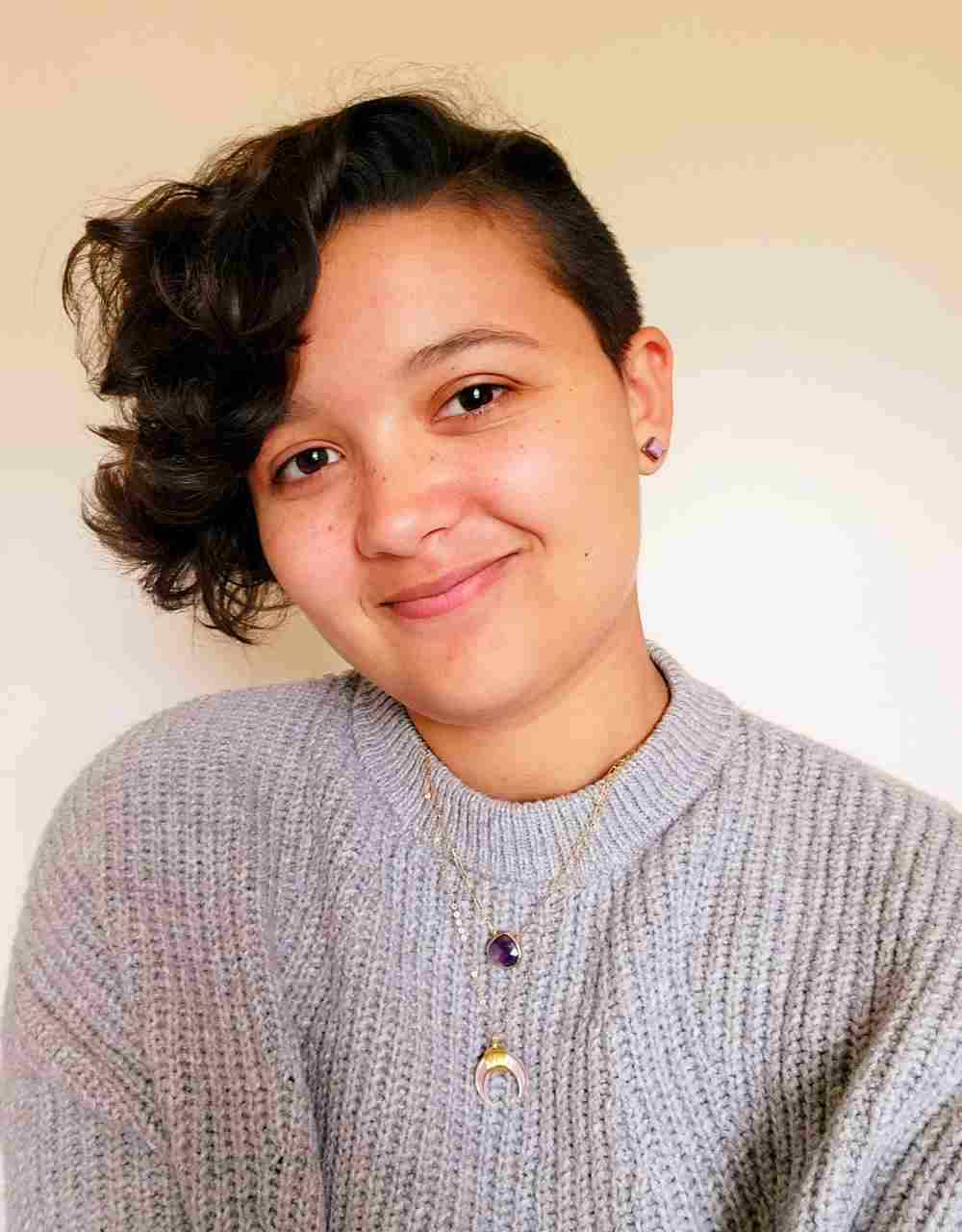
Click here to learn more about Max's experience in American Voices and Vision!
Peter Wampler, Eric Snyder, Tara Hefferan
Fall: HNR 151 10 TR 8:30-9:45 a.m. and HNR 152 10 TR 10:00-11:15 a.m. HON 214
Winter: HNR 153 10 TR 8:30-9:45 a.m. and HNR 154 10 TR 10:00-11:15 a.m. HON 214
Water is life. It shapes where we live, how we live, and if we live. Water is fundamental to many of the activities and actions we engage in both as individuals and as communities. Is safe water a human right that all people on earth should enjoy? Why do 2.1 billion people on this planet lack access to safe water in their homes? What cultural context informs our decisions about water in the United States and globally? This interdisciplinary course will explore these questions through books, articles, class discussions, guest speakers, field trips, and hands-on activities. We will take a deep dive into the science and social implications of contemporary water challenges and issues using tools, data, and perspectives from biology, geology, and cultural anthropology. We will explore contemporary water-related challenges such as lead, mercury, and PFAs in drinking water supplies; water use and allocation in the Great Lakes Watershed; and balancing competing values in the restoration of the Grand River and other waterways. The course will provide many opportunities to engage with your peers in open-ended problem solving and discussion of a range of water issues within their social and cultural context. We will explore water issues in developing nations such as Haiti, Ghana, and Ecuador. As we explore global water issues we will provide diverse viewpoints, perspectives, and opportunities for exploring how our own cultural context may impact our views of complicated water-related issues within the United States and internationally.
Click here to learn more about Making Waves: Water for a Changing World!
Tara Hefferan & Max Counter
Fall: HNR 151 11 TR 2:30-3:45 p.m. and HNR 152 11 TR 4:00-5:15 p.m. HON 219
Winter: HNR 153 11 TR 2:30-3:45 p.m. and HNR 154 TR 4:00-5:15 p.m. HON 219
This sequence focuses on the people and cultures connecting West Michigan to Latin America and the Caribbean. Using a variety of lenses—including historical, cultural, and social justice—the sequence examines how migrant communities experience and shape West Michigan. Key interconnected themes include global, national, and local immigration dynamics; demographic shifts in West Michigan; and immigration experiences in the Greater Grand Rapids area.
The course will extend beyond the traditional classroom to include the city of Grand Rapids as a space for teaching and learning. This will include engagement in the places where community gets (re)created and enacted, including churches, community organizations, sporting events, specialty stores, restaurants, and the like. Additionally, the course will include research training and practice, as students carry out qualitative research with community partners.
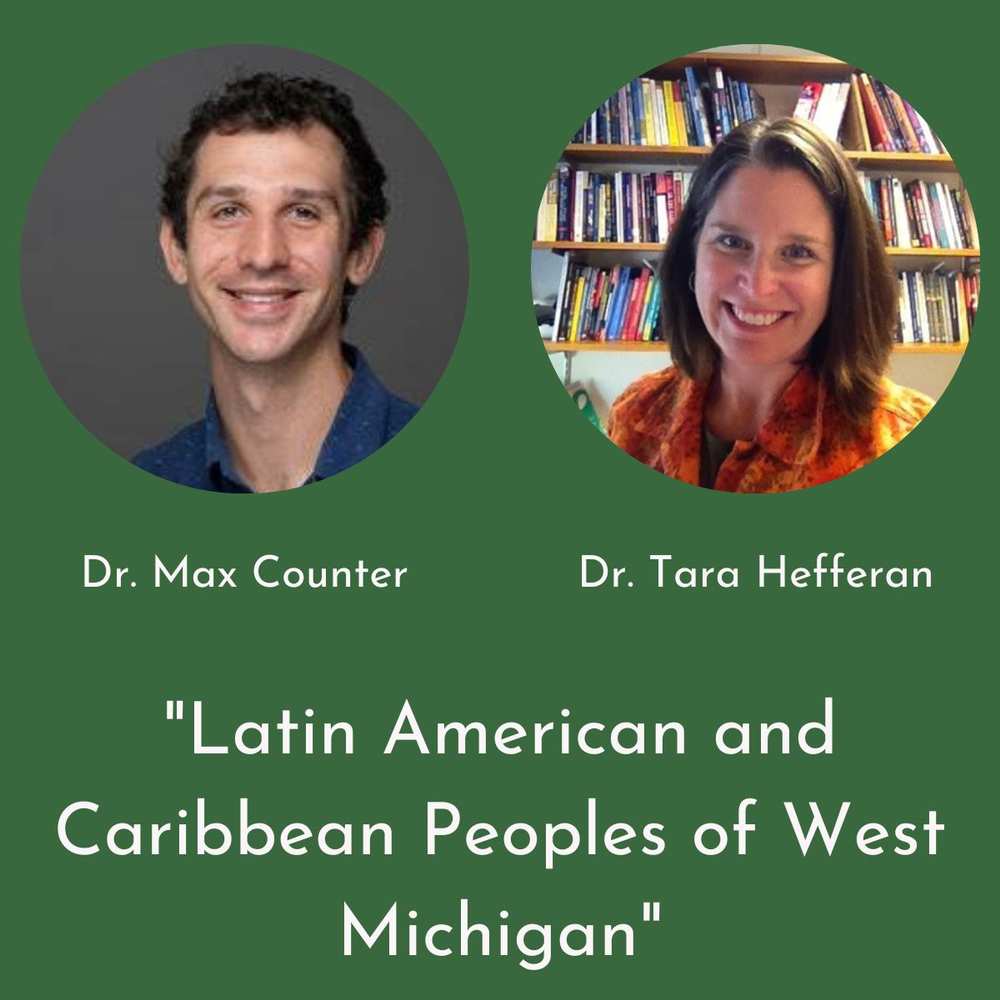
Click here to learn about Dr. Counter and Dr. Hefferan's course!
Dawn Rutecki & Azfar Hussain
Fall: HNR 151 12 MW 3:00-4:15 p.m. and HNR 152 12 MW 4:30-5:45 p.m. HHLC 109A
Winter: HNR 153 12 MW 3:00-4:15 p.m. and HNR 154 12 MW 4:30-5:45 p.m. HHLC 109A
Calling attention to the anticolonial Jamaican musician Bob Marley’s declaration in his song —"If you know, if you know your history/ Then you would know where you're coming from”— this interdisciplinary, globally-focused sequence brings together the history of colonization, its economic and social consequences, and the activist agendas seeking to weave together theory and practice to dismantle colonizing power structures in the interest of freedom and liberation. In Fall, we begin with key shifts occurring from the 15th through the mid-19th centuries, and thus examine economic, political, social, cultural, and religious changes that shaped how we experience the world today. Comparing practices coming from Europe, the European colonies, and the newly independent United States and studying their impact on targeted peoples in Africa, the Americas, and Asia, this sequence also emphasizes the modes of their resistance and survivance.
Continuing in Winter, we highlight the global shifts of physical, political, and intellectual sovereignty made by formerly colonized peoples, nations, countries, and communities. But is colonialism really a thing of the past? Is colonialism’s famous trinity of “God, Gold, and Gun” dead now? We explore these central questions in examining both colonial and decolonizing practices on a global scale in the twentieth and twenty-first centuries, while focusing on such sites as land, labor, language, and the body as the key sites of colonial domination as well as anticolonial rebellion, resistance, and even revolution. In this course, we will read, discuss, and write about the artistic, political, and scholarly work—and watch films and listen to music—that contextualize concrete experiences of colonization and decolonization.
Melba Velez Ortiz & Roger Gilles
Fall: HNR 151 13 TR 10:00-11:15 a.m. and HNR 152 13 TR 11:30-12:45 p.m. HON 148
Winter: HNR 153 13 TR 10:00-11:15 a.m. and HNR 154 13 TR 11:30-12:45 p.m. HON 148
Is listening easy? Is it the kind of thing we are good at because, like speech, we have been doing it all our lives? Is it ever okay not to listen? Like speech, listening is a process that begins long before we communicate. Our biases, presuppositions, and attitudes impact our ability to listen effectively—or even to hear others at all, as we increasingly see calls to mute, block, de-platform, and censor views deemed dangerous or unworthy. Drawing from multiple academic disciplines, this sequence explores the conceptual differences between involuntary auditory input and purposeful deeper listening practices in the context of both pluralistic societies and multicultural organizations. We will explore hearing as a function and listening as an ethic—and ultimately a highly valued leadership competency.
There are not any Sequence Spotlights at this time.
Gary Greer, Coeli Fitzpatrick, Maria Cimitile, Thomas Pentecost
Fall: HNR 151 14 MW 3:00-4:15 p.m. and HNR 152 14 MW 4:30-5:45 p.m. HON 219
Winter: HNR 153 14 MW 3:00-4:00 p.m. and HNR 154 14 MW 4:30-5:45 p.m. HON 219
This sequence explores how humans come to claim knowledge about the world and about how they make meaning from that knowledge. We will look at how scientific and philosophical knowledge is produced, how scientific consensus is obtained, and knowledge becomes communicated through standard works of science, philosophy, and the humanities. This communication is often contested, and results in questions about policies and identity. We will read some hard science, some deep philosophy, some beautiful literature and poetry, and some political fights, as we investigate and appreciate how humans have articulated their ongoing efforts to understand, describe, and change the world.
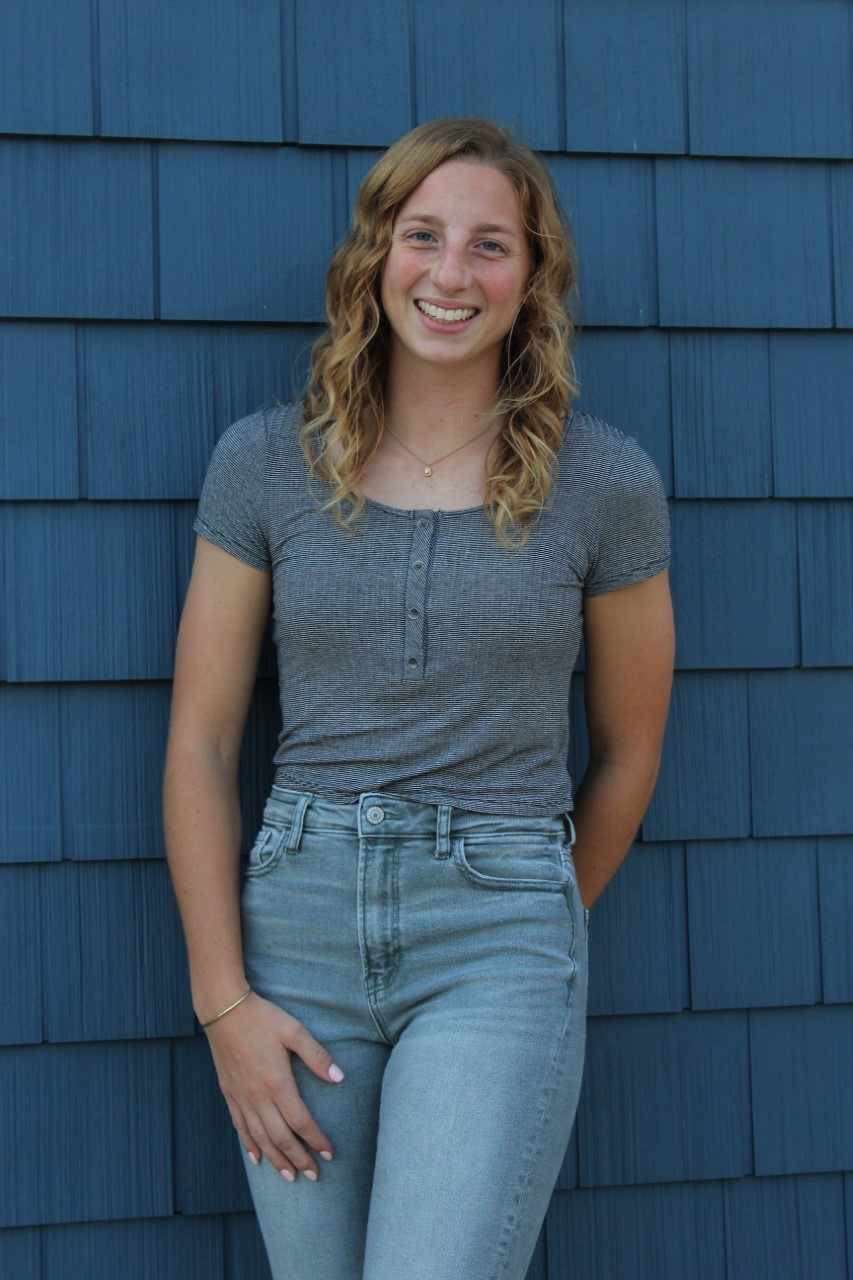
Click here to learn more about Hailey's experience in the Making of Meaning!
Peter Wampler & Melba Velez Ortiz
Fall: HNR 151 15 MWF 11:00-11:50 a.m. and HNR 152 15 MWF 12:00-12:50 p.m. HON 148
Winter: HNR 153 15 MWF 11:00-11:50 a.m. and HNR 154 15 MWF 12:00-12:50 p.m. HON 220
Do you have courageous curiosity, imagination, creativity, and inquisitiveness? Then, hop in. Let us take you on a journey that will heighten your senses, fire up your intellect, and help you skillfully tend our terrestrial ball. This course is about talking the talk and walking the walk. Wildlife Ecologist Aldo Leopold invited us to listen to nature and what it is telling us. Since our relationship to the natural environment is mediated by language, our ability to understand, predict, and protect nature depends on how we, as humans, talk about the natural environment and our relationship to it. This course empowers students to advocate for different environmental issues through the tools of environmental science and conservation, communication, and activism. Through a combination of guided readings, hands-on activities, and experiential learning opportunities, the course will provide an overview of pressing environmental issues and what we can contribute to sustainable solutions. The course will allow students to pursue their passions for environmental advocacy through service-learning, effective messaging, and community engagement.
Click here to learn more about Dr. Wampler and Dr. Velez Ortiz's new course!
Elizabeth Gansen & Anne Caillaud
Fall: HNR 151 16 MW 9:00-10:15 a.m. and HNR 152 16 MW 10:30-11:45 a.m. HON 214
Winter: HNR 153 16 MW 9:00-10:15 a.m. and HNR 154 16 MW 10:30-11:45 a.m. HON 214
In October 2020, shortly before the United States’ presidential election, the New York Times posted a quiz: “Can you tell a ‘Trump’ Fridge from a ‘Biden’ Fridge?” Players were challenged to accurately identify a person’s political views based on a very particular criterion: the food they ate. While the validity of such a quiz is questionable, nevertheless it is undeniable that food reveals something intrinsic about our identity. It tells others who we are, where we are from, and what we do with our lives. In this freshman honors sequence, students will explore the topic of food from diverse disciplinary perspectives and through various mediums, including film, literature, and art. Focusing initially on Latin American and French food culture as points of departure, we will examine the impact of histories of colonization and migration on food production and habits, the politics of food and waste, and cultural expectations surrounding the making and eating of food. We will also examine global trends in nutrition and food and their consequences for country-specific or regional gastronomy, such as what constitutes a ‘healthy’ diet as well as the growing popularity of plant-based diets. We will try our hand at making some recipes from French and Hispanic culinary traditions and take several food-related excursions. Class will be discussion-based and use several Reacting to the Past (RTTP) games that put on display the central debates and tensions that define our current relationship to food.

Click here to learn more about Dr. Gansen and Dr. Caillaud's course!